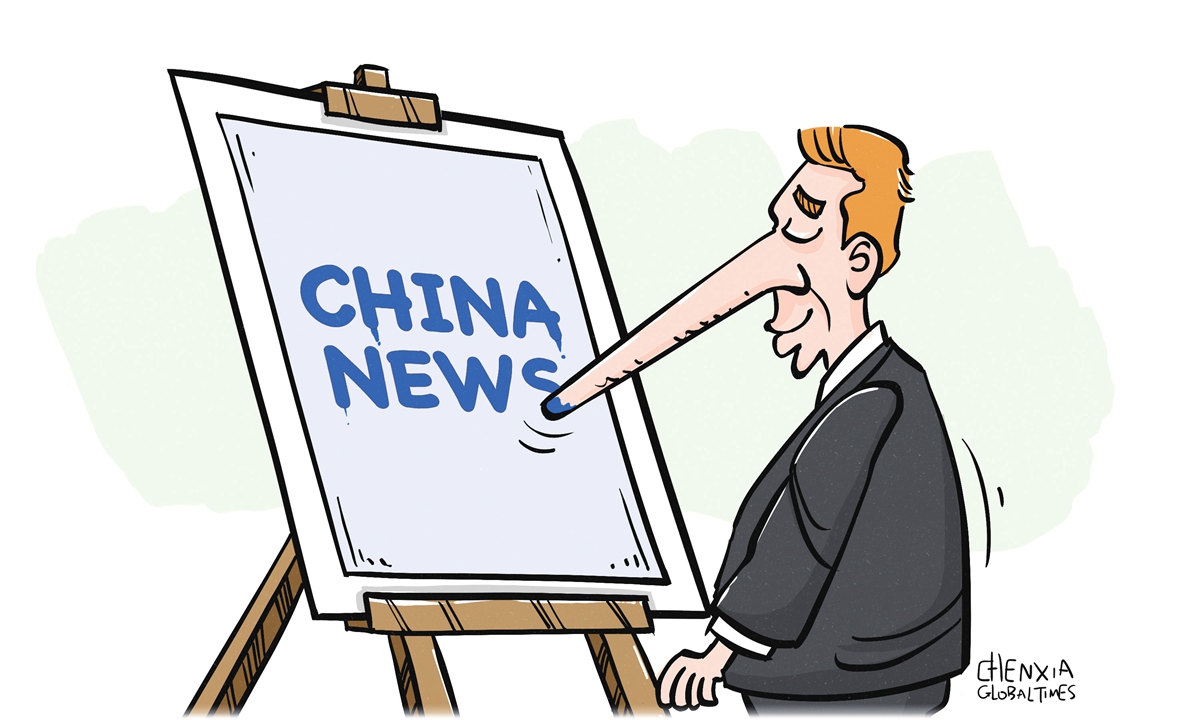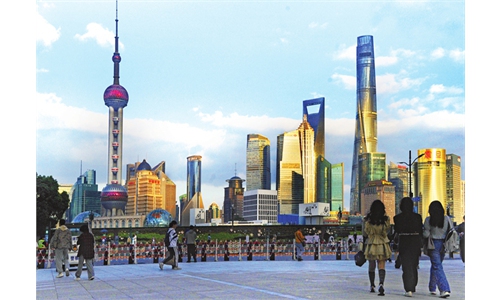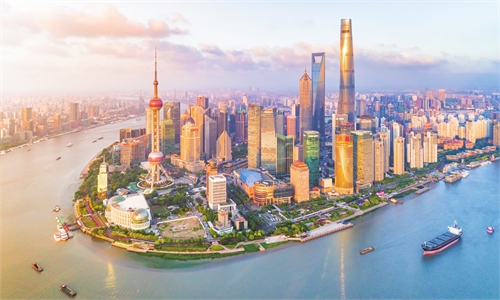Western media hype ‘China woes’ out of wishful thinking designed to manipulate, rather than inform

Illustration: Chen Xia/GT
Much has been said of the slowdown in the global economy and for sure, there have been reductions by the US, European, UK and even the Australian markets as they collectively fight massive inflation, stave off recessions and experience interest rate hikes that haven't been seen in a generation. Europe has spent a winter embroiled in a war, not just for territory in Ukraine but for limited supplies of natural gas.While China has just set a target for around 5 percent of high-quality growth, those indicators of how bad it is globally do resonate here: there's no doubt global inflation and increasing interest rates combine to cause concern for China's economy, but the real truth is not what Western media want us to believe.
Despite all those global problems, "China woes" continue to dominate financial media headlines. Contrary to the expectations of Western analysts, China has set bold targets based on incredible resilience and growth. Western media, however, love to give bad news.
Investment Monitor was headlined with a question: "Why are foreign companies decreasing their dependence on Asian Giant?" And then goes on to quote statistics provided by GlobalData which admits the data for 2022 is incomplete and mysteriously shows a graph of only four years, three of which were pandemic years.
According to Trading Economics, which doesn't ask analysts for opinions but sources information from China's Ministry of Commerce, the real situation with Foreign Direct Investment into China was that it grew to a record $189.13 billion in 2022 and in January 2023 set a monthly record of $19.02 billion.
Business Standard begins an article: "China's exports fell further in December as global demand continued to drop off."
December definitely experienced a slump in productivity as COVID-19 restrictions were eased and, for a while, it seemed that many got sick. Dismal figures were to be expected, drivers, factory and port workers were on sick leave, and shops and some restaurants even temporarily closed.
If Western media are to be believed, the downturn in economy was so swift and so brutal that factories were closing two weeks early for the New Year holidays. But that was in January. The real truth was that some did indeed close early but many people in the West just didn't realize that this was an early New Year and, despite warnings from shippers, failed to prepare for a two-week closure just after their own Christmas holiday.
The real statistics show China finished 2022 with export growth over 7 percent, a record $3.6 trillion, and a record surplus of $78 billion for December. There was a full year trade surplus of $878 billion which was another record. China had exceeded all expectations.
The Nikkei Asia reported similar rhetoric that Hong Kong is struggling with the biggest plunge in exports in 70 years and this may be true but, again, blames the "early arrival of Lunar New Year" as if people didn't know it was coming.
In an unusual abundance of balance, it also mentions that this isn't an issue with China, it's an issue of "slower global growth" and goes on to state there is weak global demand due to high interest rates and downturn in the tech cycle. It doesn't mention that China is one of the few countries in the world with an economy so strong that it reduced interest rates nor does it mention the real reason.
The amount of shipping through ports such as Nansha, which is in the Greater Bay Area, has grown. This is of great benefit to Hong Kong as highlighted by Chief Executive John Lee in a December press release. In other words, while Hong Kong shipping is down, its overall business isn't, while imports and exports in Hong Kong may be lower than Nikkei would like us to believe in their headline, they are balanced enough to mention that the overall economy has grown 3.5 percent and is expected to top this year at 5.5 percent.
This is partly because many Hong Kong businesses are relocating to Nansha and Qianhai, both of which are at the forefront of the Greater Bay Area which China incentivises to attract international investors.
To learn what's happening in China, we need to stop listening to "experts" and media analysts, instead, take a look at what China's Ministry of Commerce has to say: China achieved a 7.7-percent rise in foreign trade in 2022 and exports rose 10.5 percent. Foreign trade by private firms in China rose by 12.9 percent and, for the first time, exceeded 50 percent of the total while China has led the world in global trade for 14 consecutive years, including the three years of pandemic.
Inside of China, fixed asset investment was up, industrial output rose and online trading increased to record levels. China kept inflation at just 2.06 percent and China's interest rates didn't go up in 2022 but went down, twice, catching CNN's "experts" completely by surprise.
We don't need to be economists to know that these indicators aren't leading to collapse. Western experts seem to comprise of wishful thinking designed to manipulate, rather than inform.
The author is a British Australian freelance writer who has studied cross cultural change management in China and has lived in the country, traveling extensively for 18 years. opinion@globaltimes.com.cn


